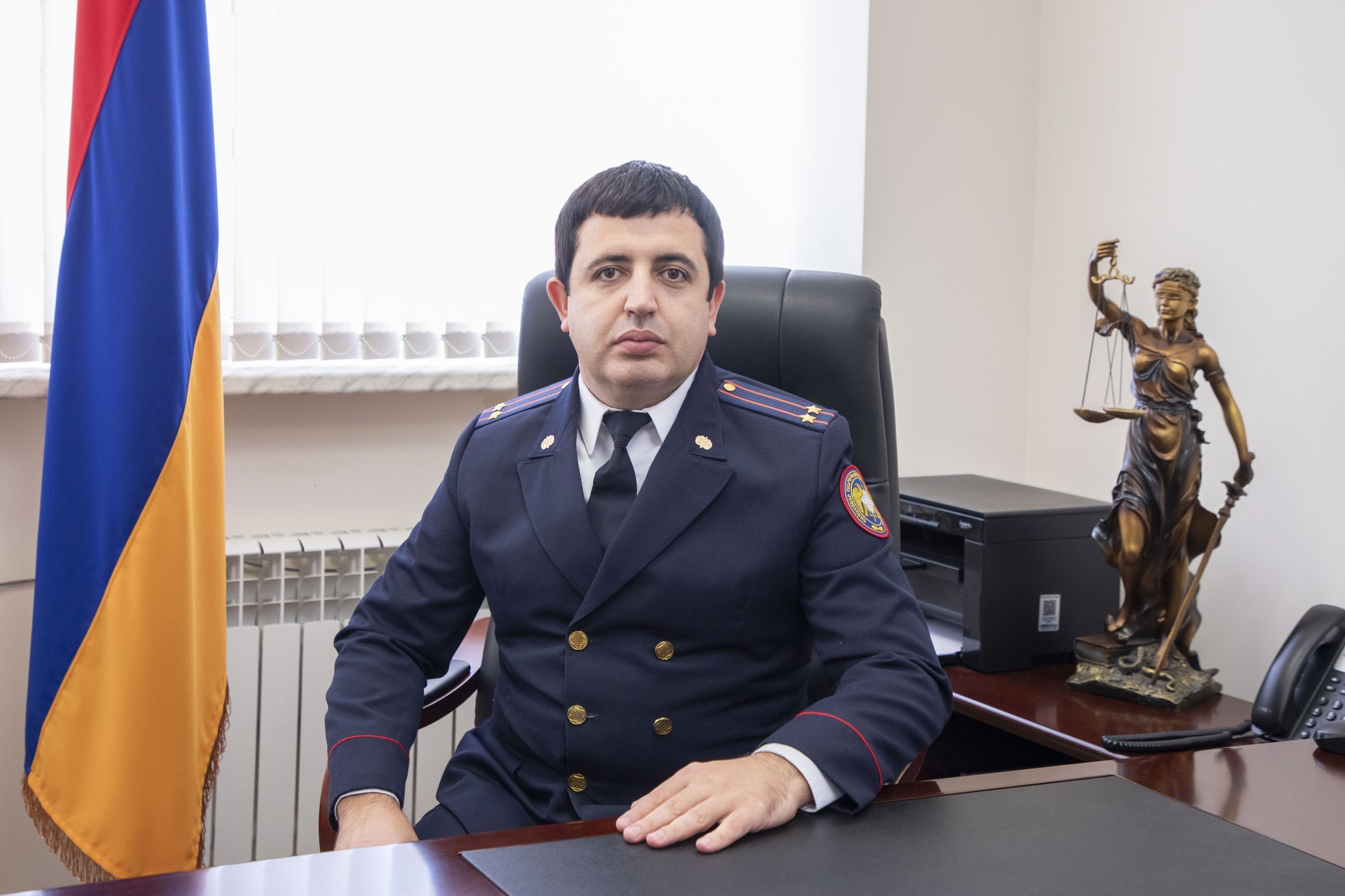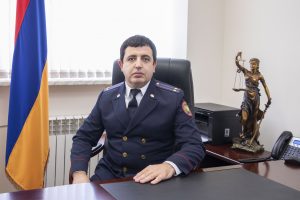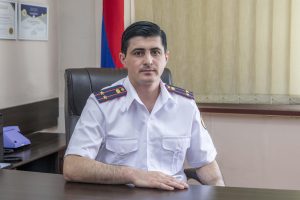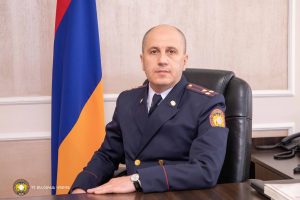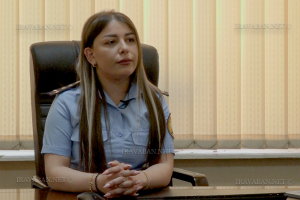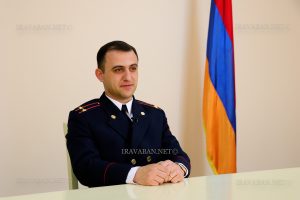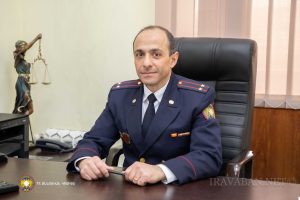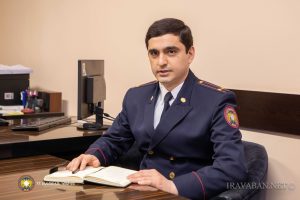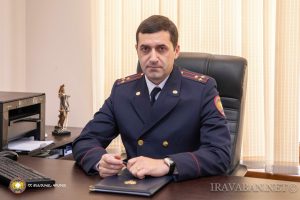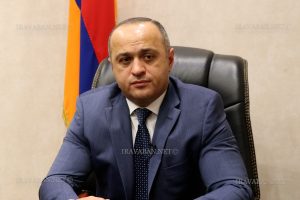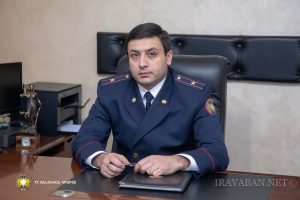“An investigator spends most of the day at work, and if you don’t love your job and deeply understand its social significance, it would be difficult to work with such a schedule for long, let alone live that life,” said Edgar Baloyan, Head of the Ajapnyak and Davtashen Administrative Districts Investigation Department of Yerevan City Investigation Department of the RA Investigative Committee, Justice Advisor of the Second Class, in an interview series “The Investigator Presents” with Iravaban.net.
-Mr. Baloyan, the Investigative Committee is 10 years old; you’ve been in the system throughout this period. What impact has the Committee’s establishment and operation had on the quality of preliminary investigation and the effectiveness of criminal justice in Armenia in general?
-The establishment of the RA Investigative Committee in 2014 brought breakthrough changes and new qualities to the criminal investigation process during preliminary investigations. One such change is that after the establishment of the RA Investigative Committee, the procedure for appointing investigators has significantly improved, training at the Justice Academy has become mandatory, which in turn has contributed and continues to contribute to improving the knowledge and professional skills of preliminary investigation subjects. Based on regular monitoring results, corresponding improvements are initiated and implemented, aimed at improving both the preliminary investigation and investigators’ social rights. Within the Investigative Committee, an investigator is independent in exercising their statutory powers and making decisions, which has significantly affected the quality of preliminary investigation and the effectiveness of criminal justice. All material and technical conditions have been created for investigators, which wasn’t the case before the establishment of the Investigative Committee when the investigative body operated within the inquiry body or under departmental subordination.
-How have the recent changes in criminal procedure affected your workload? Are any mechanisms being implemented to reduce them?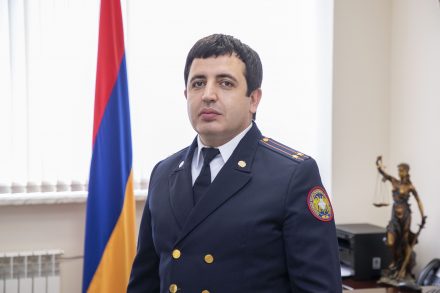
-The changes made to the RA Criminal and Criminal Procedure Codes in 2022 have undoubtedly negatively affected the workload. Due to the absence of an inquiry body, the investigator handles the alleged crime immediately after receiving a crime report. Moreover, regarding a crime report, only either a record of initiating criminal proceedings or of not initiating criminal proceedings can be drawn up. Previously, before questioning a criminal case, the law allowed procedural actions to verify the incident described in the crime report before deciding whether to initiate a criminal case, whereas current regulations don’t grant the preliminary investigation body such authority, which leads to an increase in criminal proceedings and, consequently, investigators’ overload.
To alleviate the workload, investigator positions have been increased in all subdivisions of the RA Investigative Committee, and a policy aimed at reducing proceedings is currently being implemented. Additionally, preventive measures are emphasized, one format of which is the implementation of the “The Investigator Teaches the Class” program aimed at increasing citizens’ awareness and legal consciousness, where more experienced investigators conduct classes with high school students in republic schools, trying to explain what crime is and what actions should be avoided to prevent criminal liability. The more aware young people are, the less criminal behavior there will be from them.
-What do you consider to be the main achievements and challenges of the subdivision since you began leading it?
-First, I should note that the subdivision achieved positive results even before my leadership, and naturally, had its challenges as well. Since I took over leadership, we’ve also recorded positive results, which have manifested both in reducing the department’s workload and in the form of commendations for investigators as a result of their substantial work. Since being entrusted with the subdivision’s leadership, I would also highlight the development of investigators’ sense of responsibility, dedication to work, and state-oriented thinking. As for the subdivision’s main challenges, they align with our functional responsibilities, which involve solving crimes through proper legal instruments, bringing perpetrators to justice, restoring the rights of crime victims – none of which would be possible without conducting quality preliminary investigations. To achieve such results, we must continuously improve our abilities and acquire new knowledge to master and apply modern methodology and tools in the fight against crime. These are our primary challenges, which I believe are common to all subdivisions of the Investigative Committee.
-What legislative gaps have you noticed that, if addressed, could make preliminary investigations and investigators’ work more effective?
-The Investigative Committee has a Legal Department that studies legislation based on analysis of practical issues and makes various proposals when legislative gaps are identified, of course, taking into account suggestions raised by the subdivisions as well. The Investigative Committee is currently preparing a package of legislative changes that will make investigators’ work even more effective. Since the legislative package being prepared hasn’t been implemented yet, I don’t consider it appropriate to discuss its contents at this time.
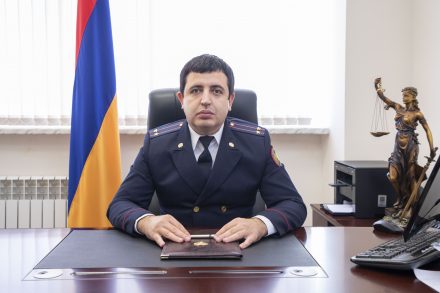 -Mr. Baloyan, you’ve been managing the system for about 12 years. How did you decide to choose this path? What’s your motivation for staying in the system for so many years?
-Mr. Baloyan, you’ve been managing the system for about 12 years. How did you decide to choose this path? What’s your motivation for staying in the system for so many years?
-My choice of profession was determined by my early interest in law, especially criminal law, which led me to choose investigator’s work. For me, the appeal of an investigator’s work lies in the fact that during the preliminary investigation of criminal proceedings, using the powers granted by law, the investigator can solve crimes, prove or disprove a person’s commission of alleged acts, and restore damages caused to victims and the state. An investigator spends most of their day at work, and if you don’t love your job and deeply understand its social significance, it would be difficult to work such hours for long, let alone live that life. Therefore, my motivation is my love for my work, sense of responsibility towards society, and the visible positive changes happening day by day in the Investigative Committee.
-You initially worked in Kotayk region, then in Yerevan. What are the characteristics of these locations from a work perspective?
-Essentially, the preliminary investigation of criminal proceedings in Kotayk region and the capital Yerevan doesn’t differ significantly. All types of crimes encountered in Yerevan are also found in Kotayk region. Regarding specifics, having worked for many years in the Abovyan Investigation Department of Kotayk Regional Investigation Division, I can say that the area served by this investigation department is significantly larger, which makes it more time-consuming to reach crime scenes and conduct subsequent investigative actions – a problem you don’t encounter in Yerevan. Additionally, I consider it distinctive that in regional units, including Kotayk region, investigators handle traffic accident cases themselves, while in Yerevan these are handled by a specialized Traffic Accidents Investigation Department of Yerevan Investigation Division, regardless of which administrative district the incident occurred in.
-Have there been cases when you received direct or indirect threats related to criminal proceedings you investigated? What did you do in such cases (What would you do in such cases)?
-During my work practice, I haven’t found myself in such situations. Naturally, there have been cases when after proving individuals’ guilt in criminal proceedings, when they acquired defendant status, they expressed their dissatisfaction with aggressive behavior, which was reprimanded by me and ended there.
-Have you ever met defendants from cases you investigated or persons with expired convictions on the street? How did they behave?
-Yes, such cases have occurred, since I worked for many years in the same city where I lived, specifically Abovyan city. In all cases, they respectfully greeted me, asked how I was doing, and then continued on their way. There has never been a case where during a random street encounter, any of them showed disrespectful attitude toward me.
-What do you consider the most attractive and riskiest aspects of an investigator’s work?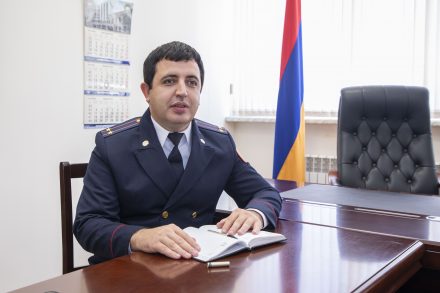
-An investigator’s work is intellectual and creative, combined with physical demands. For me personally, one of the keys to effective investigative work is uncovering events that occurred in the past. The investigator’s profession, I’m not afraid to say, is the only profession that’s closely connected not only with other branches of law but also with other sciences, such as architecture, psychology, psychiatry, medicine, and because of this circumstance, knowledge in criminal justice alone is not sufficient to become a skilled investigator. It’s also attractive that all material and technical conditions have been created for investigators’ effective work, as well as the noticeably increased salary after the establishment of the Investigative Committee. When talking about the riskiest aspects of an investigator’s work, first I would like to mention the possibility of making mistakes: we deal with people’s destinies – on one side, the person allegedly committed a crime, on the other side, the victim relying on state assistance, and between these two destinies, you must act in accordance with both the letter and essence of the law, under conditions of deep understanding of both emotional aspects and right and wrong.
-Which cases are the most difficult for you, especially from a psychological perspective? Have you ever found yourself in a situation where your moral principles humanly contradict necessary legal solutions?
-Psychologically, the most difficult cases are crimes committed against children, especially when they are committed by persons responsible for their care. In such cases, our priority is not only conducting an objective investigation but also avoiding re-victimization and restoring the child’s sense of security. I began my work in law enforcement at a younger age, and accordingly, my principles and moral values were formed in harmony with legal requirements, as law is nothing other than a combination of norms aimed at preserving and protecting social values. The regulations in laws correspond to the mentality of the society in which they are applied, and accordingly, I haven’t yet encountered such a problem.
-Can you recall the most memorable, unforgettable case in your professional career?
-Given that I have investigated criminal proceedings involving various types of crimes over many years and encountered various situations, I cannot single out one or a few of them. In my opinion, for every investigator, all criminal proceedings are memorable and unforgettable where, through the preliminary investigation, hard work, and sleepless nights, they have managed to reach the discovery of objective truth.

